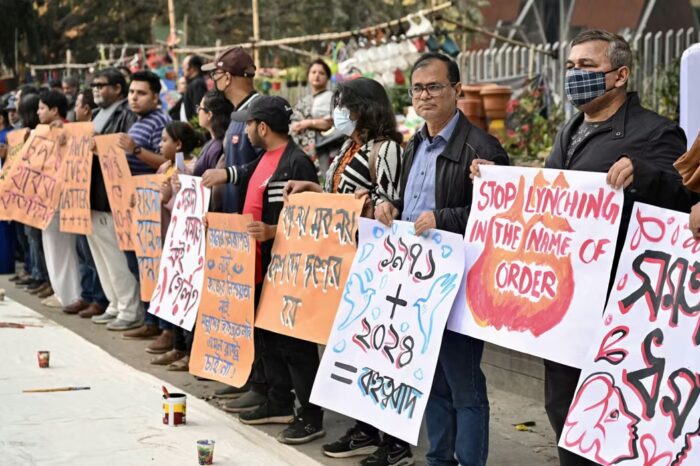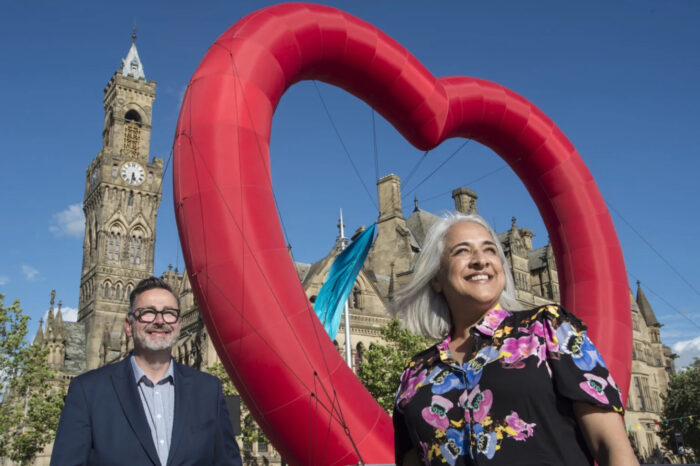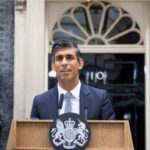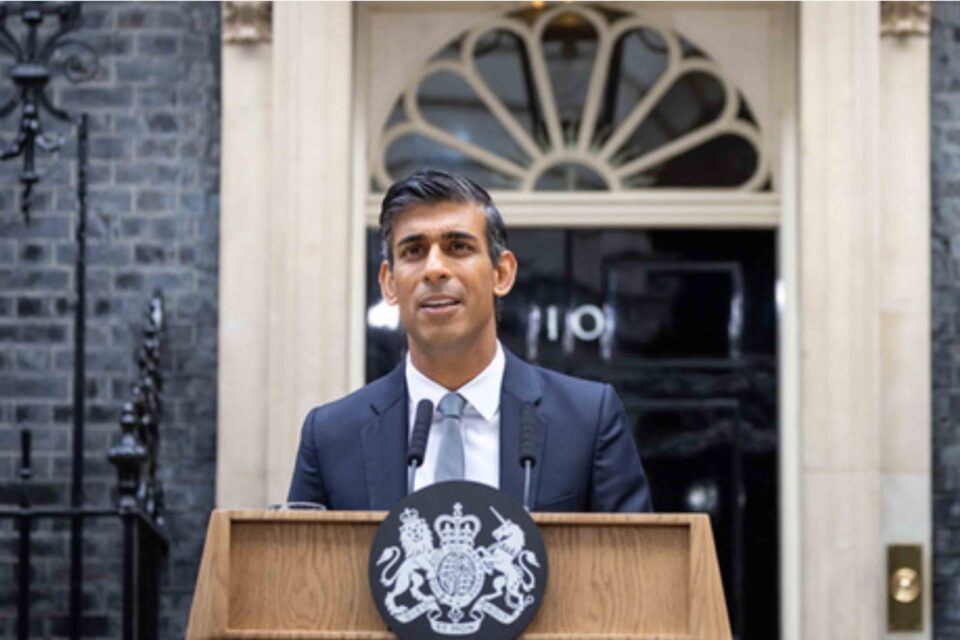
Image by GOV.UK
By Swarupa Tripathy
After Liz Truss stepped down in October last year, Rishi Sunak emerged as the most popular choice among the Conservatives and became the next leader of the nation.
Amid the crisis that was rocking the party, along with the UK’s dwindling economy post the Covid-19 pandemic, the 43-year-old leader had to prove his abilities not just to his fellow party members, but also to British citizens.
In the last six months, Sunak has promised to bring about major changes, the results of many, we are yet to see. However, despite dodging a full-blown leadership crisis unlike his predecessors Boris Johnson and Liz Truss, he has had a bumpy journey so far. It is, thus, hard to say whether his leadership has been a success or a failure.
Satbir Kaur Gill, from Glasgow, says that the prime minister is “very charismatic, energetic and capable leader”. She is of the opinion that he is “focusing on the real issues that the country is facing and finding best solutions to solve them”. She admits that only time will tell whether his efforts will prove to be effective or not since it has been “tough post Covid and with the ongoing war”.
London-based, Zaina Haroon, has a different opinion. She says, “(I) wasn’t buying his nice guy act in the first place, but he sure is working real hard to prove there can’t be such a thing as a good Tory. They are clearly quite happy to spend £100 million on a Coronation but not (on) the cost of living crisis. Bad eggs the lot of them.”
In terms of the economy, Sunak’s bet on Jeremy Hunt being able to win the confidence of the country through his “budget for growth” proved to be a somewhat sound choice. The government’s budget included a commitment to implement significant measures to improve childcare, initiatives to stimulate business investment, a rise in the national insurance threshold, an income tax cut in two years’ time, and a controversial restructuring of pensions intended to strengthen the struggling NHS workforce.
Although the introduction of these did not lead to a disaster unlike when the ‘mini-budget that broke Britain’ was revealed under Liz truss’s leadership, which saw Kwasi Kwarteng announce £45 billion of unfunded tax cuts for the rich; Hunt’s budget did not fare as well as Sunak had hoped. With the ongoing cost-of-living crisis, the chancellor’s mini-budget was attacked as insufficient to tackle the issue.
Sunak’s policies have been widely debated, but, he still sees a large amount of support as he has emerged a strong leader despite being at the receiving end of a large amount of criticism. “He’s got one thing right which is bringing balance to the governmental interventions policies, as well as disinvestments and tax cuts,” says Abheer Kukreja, from Glasgow.
Northampton resident Zeena Mistry shares, “So far, Sunak has demonstrated that he is just wanting to get on with the job – he doesn’t appear to be bothered with making big bold moves to go down in history as a revolutionary prime minister, like I think Liz Truss attempted to do.”
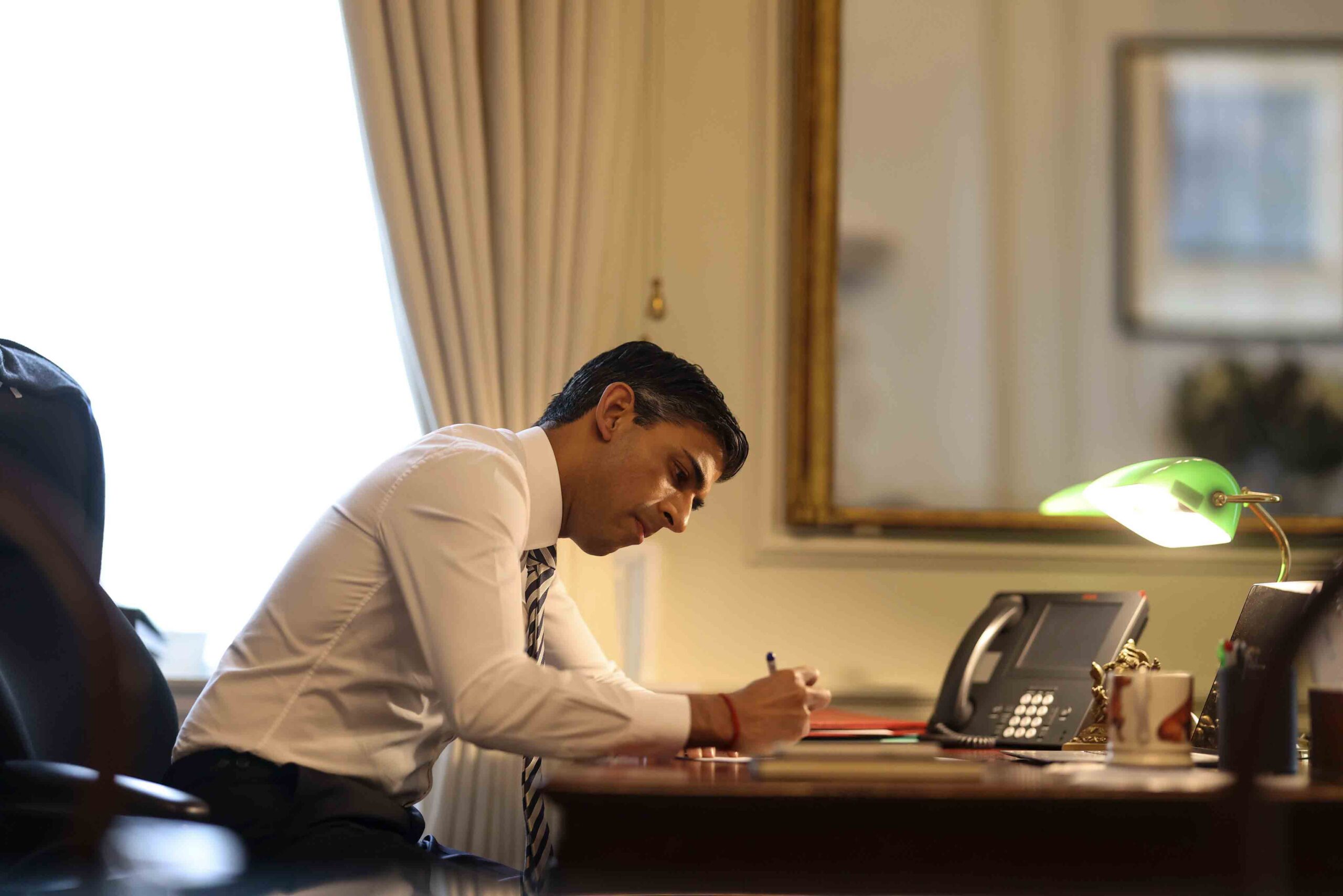
Image by Twitter @RishiSunak
“There’s a reason he was asked to be chancellor by Boris Johnson in his cabinet reshuffle back on the 13th of February, 2020, and that is because Sunak has a vision (in line with the Conservative Party) and does genuinely want to do good for the country. His own intentions don’t seem to be at the forefront of his leadership. In terms of his policies, I do think we have to cut him a little bit of slack, he’s (the) prime minister of the UK after such a turbulent period (Brexit/Covid) and now the war in Ukraine and the cost of living crisis. As long as Sunak ‘keeps his head down’, gets on with the job and doesn’t react to the murmurs of dissatisfaction online/in the Conservative Party, he should be okay,” she adds.
Just like his predecessors, Sunak asserted his intentions to stop the increasing number of cross Channel migration in small boats. Earlier in March, he introduced robust legislation in addition to a costly agreement with France to enhance patrols along the English Channel.
However, a cherry on top of home secretary Suella Braverman’s often racist and controversial comments, was when the government admitted that the ‘Illegal Migration Bill’ breaches human rights law.
Kukreja says, “For me, it’s fair to say I do not believe in the current Conservative government over Brexit. I’m a Conservative myself, but I back the European Union (EU) more, especially for Scotland. Likewise, I am vocal for the robust fiscal policies, but I believe some of the cabinet members chosen by Rishi Sunak are utterly disgraceful, which includes Suella Braverman as his home secretary whose policies and ongoing rhetoric bring hatred and division than any answers.”
Upon assuming office, Sunak was also confronted with the challenge of tackling a series of strikes across the UK as employees staged walkouts in demand for an increase in wages, following a prolonged period of public sector pay disputes.
Over the last couple of months, teachers, nurses, firefighters, ambulance drivers, railway workers and civil servants, among others, have all been part of the biggest round of walkouts seen in decades.
Following an initial decision to introduce a new legislation aimed at impeding trade unions from staging a strike, the tone of industrial relations attempted to adopt a considerably less confrontational approach afterward.
Breakthroughs happened after a series of “intensive” talks with some unions, but many disputes are ongoing, with the government’s offers rejected on many occasions, leading to further strike action.
Up north, the Scottish National Party (SNP) has demanded a second referendum for Scottish independence, which, under the former first minister Nicola Sturgeon’s reign, was blatantly refuted by Rishi Sunak.

Sturgeon cited that the reason for her wanting to step down earlier this year was the lack of privacy that came with being at the front line of Scottish politics. She said in her resignation speech, “The nature and form of modern political discourse means there is a much greater intensity – dare I say it, brutality – to life as a politician than in years gone by.
“All in all – and for a long time without it being apparent – it takes its toll, on you and on those around you.”
Figures pointed out that Sturgeon’s popularity was quickly declining mostly because of the internal divisions in the SNP when it came to independence, as well as the gradual degradation of public services under her administration.
Sunak’s firm opposition to a second referendum and his decision to block Scotland’s controversial gender recognition reform bill added fuel to the fire. Sturgeon was at the receiving end of a lot of criticism, and weeks later, announced her resignation.
Kukreja believes that Sunak overlooks the demands of the people in Scotland and needs to “pick up pace on Scottish policies and issues”. “I certainly believe that Rishi’s fiscal policies are strong, and bringing the Britain’s economy back, but his touch with the people, especially the Scottish people is just not there,” he adds.
A firm supporter of Brexit, Sunak played a major role in the post Brexit trade deal for Northern Ireland with the European Union.
In his speech post the deal, he said, “I’m pleased to report that we have now made a decisive breakthrough.
“Together, we have changed the original Protocol and are today announcing the new Windsor Framework.
“Today’s agreement:
“Delivers smooth flowing trade within the whole United Kingdom.
“Protects Northern Ireland’s place in our Union.
“And safeguards sovereignty for the people of Northern Ireland.
“These negotiations have not always been easy, but I’d like to pay an enormous personal tribute to Ursula for her vision in recognising the possibility of a new way forward.”
This garnered praise from other leaders such as US president Joe Biden, as well as political parties including Sinn Féin and Labour, because it was seen as a potential solution to an issue which was considered to be unsolvable previously.
On the other hand, the leader of the Northern Irish Democratic Unionist Party (DUP), Jeffrey Donaldson, said that it “does not solve our fundamental problems with Protocol and needs to be changed”. The arch-unionist party voted against the government’s Windsor Framework Brexit plans in Parliament in March, making it’s stand crystal clear on the matter.
Even though Sunak does not need DUP support, it is important for them to be on his side to avoid a potential Tory rebellion, which can lead to a collective opposing voice that will take every opportunity to undermine the deal.
Lastly, in terms of his supporters, especially from the British Asian community, it is safe to say that the response is largely mixed. Many expressed their disappointments when we asked what they thought of him as a leader, but did not fail to mention a few positives. We also conducted a poll on Instagram, where 55 per cent of respondents said that “they are yet to see the results of his policies”, 32 per cent agreed that “he has been a good leader”, and the rest 13 per cent of respondents did not feel that he has proven his abilities as the prime minister of the United Kingdom.
Time will reveal the outcome of many of Sunak’s policies, and whether he will stick to the promises that he has made to hopeful Britons. But for now, Sunak has to navigate many more challenges, ensure that his policies are accepted and approved, and maintain his popularity as a leader within the party, as well as the rest of the country.

